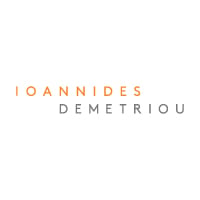

Chief legal and compliance officer | Roche Hellas





Matina Kresta
Chief legal and compliance officer | Roche Hellas
Team size: Four
Major legal advisors: Zepos & Yannopoulos, Platis-Anastassiadis & Associates Law Partnership – EY Law, Rokas Law Firm
Bio
Matina Kresta is an accomplished legal leader with a career spanning over two decades, known for driving legal excellence and fostering innovation. As chief legal and compliance officer at Roche Hellas since June 2020, Matina has been instrumental in shaping legal and compliance strategies that not only safeguard the organisation but also advance Roche’s mission to provide access to life-saving medicines and breakthrough innovations. With a focus on advancing healthcare ecosystems, Matina works to ensure that Roche’s solutions reach more patients globally, leveraging existing legal frameworks with the company’s vision for sustainable, patient-centred healthcare.
Prior to Roche, Matina held significant leadership roles in the food and energy sectors, including general counsel at Delta Foods and senior legal counsel at BP Hellas, where she navigated complex regulatory environments and led legal teams through transformative business changes. Her responsibilities included offering strategic legal counsel to senior executives, managing corporate governance and executing special projects, such as business expansion beyond Greece, acquisitions and joint ventures. Matina‘s contribution to Delta Foods was instrumental in establishing the legal department i.e., setting up internal workflows to streamlining legal processes, enhancing operational efficiency and handling severe litigation cases with great success. Prior to this, at BP Hellas, Matina handled complex legal matters such as commercial agreements, real estate negotiations and regulatory compliance (data privacy).
These experiences strengthened Matina’s ability to balance legal rigor with strategic foresight, always with a view toward unlocking new opportunities for business growth and innovation.
A strong advocate for creating synergies between business and legal functions, Matina emphasizes the importance of compliance as a value driver, rather than a constraint. By fostering cross-functional collaboration and embedding legal expertise into the core of business operations, Matina contributes to building resilient, future-ready organisations.
Matina holds a law degree from the Athens University and an executive MBA from ALBA – The American College of Greece. She has also pursued specialisation in data, law, policy and regulation at The London School of Economics and Political Science (LSE) and completed an innovation management study tour at SDA Bocconi, further expanding her skills in driving business transformation. She is a member of the Athens Bas Association and qualified lawyer to plead before the Supreme Court.
Committed to creating a positive impact, Matina continuously seeks to advance the healthcare ecosystem, ensuring that legal and compliance strategies pave the way for broader access to medicine and innovation.
How do you approach managing legal aspects during periods of instability or crises, and how does your legal strategy align with the broader business strategy to ensure the organisation’s resilience?
In times of instability or crises, lawyers should play a crucial role in ensuring organizational resilience and legal compliance. To achieve that my team and I embrace a fourfold approach: firstly, we closely monitor external ecosystems and challenges, bring these insights in, keeping the organisation informed, proactive and adaptive. If needed, risk assessments are conducted (architects). Furthermore, we offer robust support and practical, agile solutions leveraging technology, towards encounter the unprecedented challenges (catalysts). Showing empathy and understanding in our interactions plays a pivotal role: we earn trust, which is of utmost importance in periods of crisis. We maintain open lines of communication; we enhance trust and enable business decisions (coach). Of course, compliance and ethics remain priority connecting business with the company mission and values (visionary), therefore clear guidance to prevent misunderstandings due to crisis is needed.
Aligning the legal strategy with the broader business strategy is an imperative. Embracing a compliance mindset, the legal function collaborates closely with executive leadership and with all employees to integrate legal into business decision-making processes. By positioning legal as a strategic partner and enabler, we provide advice that supports business objectives while safeguarding the organization’s interests.
At the same time, we are trying to be also externally focused; by engaging with the external ecosystem, we strive for a triple win: benefiting the company, the ecosystem, and the patients (as we work for a pharma company). This holistic approach, focusing on compliance, business objectives, strategic alignment and external engagement, ensures that the organization can navigate crises effectively, emerge resilient and succeed in business outcomes.
In your opinion, what are the main trends that are salient in your country currently (these can be legal, political, economy or business-based)?
In its cost-containment efforts, the Greek authorities have set in place mandatory paybacks (rebates and clawbacks) for pharmaceutical companies. This was implemented as a provisional measure to ensure a steady supply of pharmaceuticals to the healthcare system during the financial crisis (2012). Since then, the economy has improved, thus the mechanism remains in place. The mechanism works as follows: the government sets an annual budget for pharmaceutical expenditure, which is significantly lower than patients’ needs. Along with a co-payment from patients, the deficit is covered by pharma companies, which in 2022 were obliged to pay back 60% and in some cases 70% from their sales.
In order to understand the situation better the following data coming from a recent survey are enlightening: compared to other European countries, the public budget for pharmaceutical expenditure is underfunded, as Greece has a deviation of 70pp from the European average, while it is the only country that reduced the total funding of medicines, between 2013 and 2022. Greece is also the only country to reduce public hospital funding for medicines, recording a deviation of 116pp, compared to the European average between 2013 and 2022 (the European average is +89.6% and Greece has fallen by -26.6%).
Consequently, as the same study has shown, less pharmaceutical innovation reaches Greek patients, with significant delay and half of them with restrictions on access. This dire business environment created by underfunding and excessive paybacks has resulted in 53% of new innovative medicines probably not becoming available to Greek patients soon, endangering the access of patients in Greece to innovative lifesaving medicines.
It is important to be reminded that health is a country’s most important investment for stronger economic growth. As McKinsey has estimated, every dollar invested in healthcare has the potential to return US$2 to US$4 to national economies. This insight is even more important currently, since economies across Europe are stretched and governments and health systems must prioritize spending on the areas of highest need and impact.
Furthermore, the life sciences sector must work harder to demonstrate the value of innovation to society. Stakeholders (governments, industry, academia and patients) must collaborate closely to ensure both equal, universal and timely access of Greek patients to new, innovative therapies in a sustainable business environment.
Chief legal and compliance value officer | Roche Hellas SA